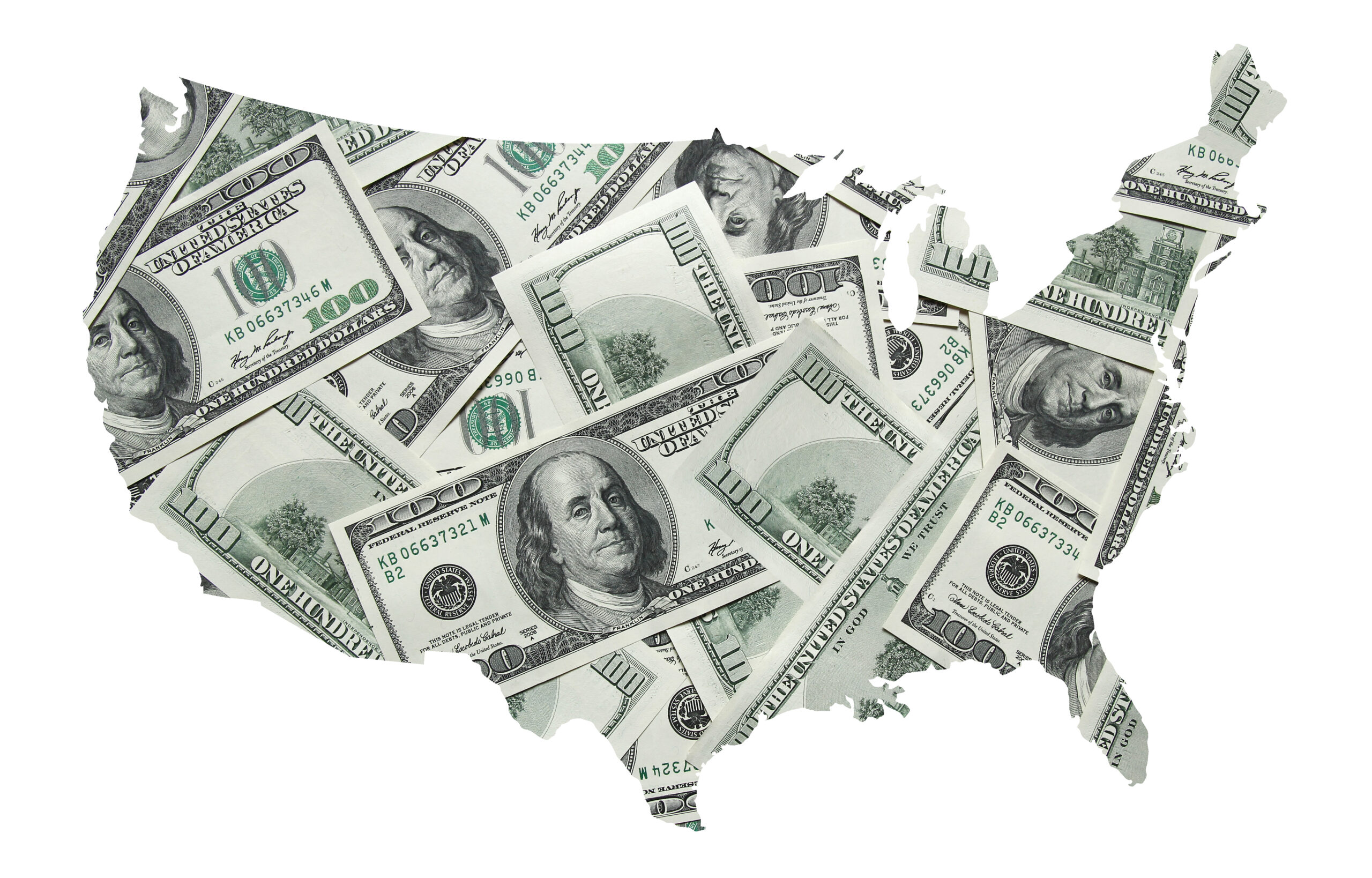Posts tagged ballot measure
Commentary: Massachusetts Voters Support Unions for Uber Drivers
October 31, 2025 // The numbers needed to unionize the rideshare drivers are shockingly low. According to Axios, just 5% of all drivers need to sign on, and then 25% of so-called “active drivers” must support forming a bargaining unit, i.e., a group of employees who negotiate with management. After that threshold is met, the state recognizes a union that will represent all drivers—whether they supported it or not. In other words, if you’re an independent rideshare driver in Massachusetts, you don’t get a choice. The union chooses for you. Moreover, if 5% of workers want to form a union, every rideshare company must provide every driver’s contact information to union officials. Nationwide, the threshold for forming a bargaining unit is a majority vote. Massachusetts is now proposing to impose compulsory unionization with far less support—and with sectoral bargaining that extends far beyond one workplace and into the cars of rideshare drivers across the Bay State.

CALIFORNIA: Unions opposing Trump agenda pouring money into Proposition 50 campaign
October 27, 2025 // Besides opposing pleas from former President Obama and former California Gov. Arnold Schwarzenegger, the state’s powerful, left-leaning labor unions are another factor that may influence the outcome of the Nov. 4 special election. Unions representing California school teachers, carpenters, state workers and nurses have plowed more than $23 million into efforts to pass Proposition 50, according to an analysis of campaign finance disclosure reports about donations exceeding $100,000. That’s nearly one-third of the six-figure donations reported through Thursday. Not only do these groups have major interests in the state capitol, including charter school reform, minimum wage hikes and preserving government healthcare programs, they also are deeply aligned with efforts by Gov. Gavin Newsom and his fellow Democrats to put their party in control of the U.S. House of Representatives in the 2026 election.
Michael Watson: Improving Union Annual Reporting
July 3, 2025 // Especially following the 2010 Supreme Court decision in Citizens United v. FEC, which “collection” is funding what spending is important information for union members, and they deserve ready, single-site access. (Citizens United overturned a Taft-Hartley Act–derived ban on using union dues revenues for independent expenditures on behalf of candidates.) They should not need to cross-reference Federal Election Commission (FEC) reports and Labor Department reports to infer which pot of money paid for which spending. Instead, the Labor Department or Congress should revise the LM-2 form to require labor unions to specify the funding source, perhaps by adding a new schedule for expenditures to or by the “Separate Segregated Fund” (the technical name for the “second collection” pot of money) or by requiring specification of the source of funds for Schedule 16 and 17 expenditures related to politics and advocacy.
Restaurant owners, workers hold competing rallies over potential repeal of Initiative 82
June 5, 2025 // Wednesday, business owners and workers held competing rallies outside the Wilson Building, as the D.C. Council considers the fate of Initiative 82. Initiative 82 was passed in November of 2022 and implemented the following Spring. The voter-backed law eliminates the tipped minimum wage by gradually raising wages over the next several years. But that law is now in question, as Mayor Muriel Bowser proposed repealing I-82 under her 2026 budget.

Businesses seek to overturn hotel and airport wage hikes by forcing a citywide election
May 30, 2025 // Under the city's laws, hotel and airport workers have minimum wages that are higher than those who are employed by other industries. The hotel minimum wage, approved by the council in 2014, is currently $20.32 per hour. The minimum wage for private-sector employees at LAX is $25.23 per hour, which includes a $5.95 hourly healthcare payment. For nearly everyone else in L.A., the hourly minimum wage is $17.28, 78 cents higher than the state’s. The federal minimum wage is $7.25 per hour.
Idaho teachers union plots campaign to target conservatives in 2026 primaries
March 29, 2025 // But while the IEA may be nonpartisan in the sense that it doesn’t care about party labels per se and will happily back candidates running as Republicans if they support the IEA, there’s no disputing that the union’s ideology places it on the far-left flank of Idaho politics. As a Freedom Foundation analysis of the IEA’s political activity in 2024 previously documented: “The IEA behaves exactly as one would expect of a far-left advocacy group in a conservative state. The union attempts to curry favor by endorsing Republicans running in safe elections when the outcome isn’t in doubt, though rarely do such endorsements come with meaningful financial support. In GOP primary elections, the IEA focuses its resources on defeating select ideological adversaries and, as soon as the general election rolls around, it switches gears to prioritize electing Democrats in competitive races. Overall, 93 percent of IEA-connected PAC spending in the 2024 general election supported Democrats.” Also, as the Freedom Foundation reported last year, the IEA paid $25,000 in members’ dues to the Idaho Progressive Investor Network in the 2021-22 tax year.

Commentary: Plan B is Activated
November 19, 2024 // They are now turning to Plan B, which is sectoral organizing. And they notched a big win in the recent election with a ballot proposition in Massachusetts—a win that the mainstream media is heralding as a good thing. In fact, the same pro-union media bias that we saw with reclassification attempts such as Assembly Bill 5 and the PRO Act is simply resetting and restarting anew. Now, it’s being used to promote this other way of trying to limit self-employment.
Massachusetts Ballot Measure Would Shove Rideshare Workers Into the Arms of Unions
October 12, 2024 // Even as independent contractors, however, unions still threaten drivers’ flexibility. Unions might negotiate standardized rates, mandatory breaks, or limits on working hours, which, while beneficial in some industries, could restrict a driver’s ability to capitalize on peak demand periods or adjust their work hours to fit personal schedule. The risk of such changes only magnifies when one considers that the Ballot Measure only requires a 25% vote from drivers to form a union that would represent them as a whole. This means that the 30% of drivers working full-time, who would benefit most from being treated like employees, might be able to dictate policy for all rideshare drivers.

Commentary: The Big Fear? A Real Rematch
July 6, 2024 // Just a few hours after the court’s ruling dropped late last week, allowing both ballot measures to proceed, the Massachusetts attorney general made an announcement of her own. She agreed to a deal that will let Uber and Lyft drivers in Massachusetts remain independent contractors, with a minimum hourly wage of $32.50 and some benefits. Interestingly, the attorney general’s announcement noted that the deal averts giving the people of Massachusetts a chance to vote on the matter:

Minnesota’s Misguided Crackdown Of Independent Contractors
November 1, 2023 // Much to the chagrin of Minnesota regulators, rideshare drivers overwhelmingly identify as independent contractors and not employees. Uber and Lyft drivers have, instead, advocated for portable benefits as a means to insulate themselves from forced reclassification. Utah recently became the first state to pass this reform, while states like Massachusetts are mulling similar bills and will also have an opportunity to vote on a 2024 ballot measure to maintain their IC status. Minnesota should study California Assembly Bill 5 and similar efforts that displaced workers and left them worse off under the guise of “fighting” misclassification.
